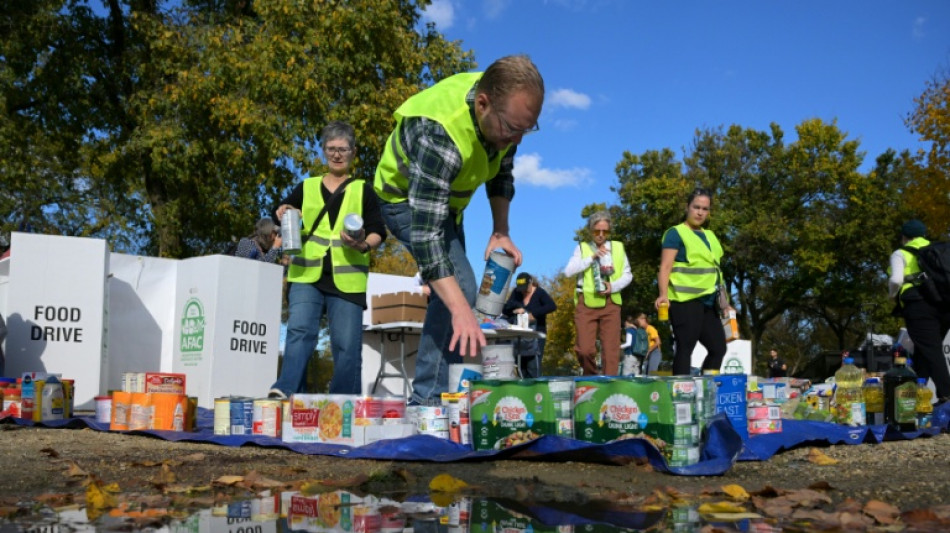
-
 China's Xi to meet South Korean leader, capping APEC summit
China's Xi to meet South Korean leader, capping APEC summit
-
Japan's Chiba leads after Skate Canada short program

-
 Finland's crackdown on undocumented migrants sparks fear
Finland's crackdown on undocumented migrants sparks fear
-
Climbers test limits at Yosemite, short-staffed by US shutdown

-
 Gstaad gives O'Brien record 21st Breeders' Cup win
Gstaad gives O'Brien record 21st Breeders' Cup win
-
After the tears, anger on Rio's blood-stained streets

-
 Sinner boosts number one bid in Paris, to face Zverev in semis
Sinner boosts number one bid in Paris, to face Zverev in semis
-
Springer back in Toronto lineup as Blue Jays try to close out Dodgers

-
 Nationals make Butera MLB's youngest manager since 1972
Nationals make Butera MLB's youngest manager since 1972
-
Guirassy lifts Dortmund past Augsburg ahead of Man City clash

-
 G7 says it's 'serious' about confronting China's critical mineral dominance
G7 says it's 'serious' about confronting China's critical mineral dominance
-
NFL fines Ravens $100,000 over Jackson injury status report

-
 NBA refs to start using headsets on Saturday
NBA refs to start using headsets on Saturday
-
Trump says Christians in Nigeria face 'existential threat'

-
 French-Turkish actor Tcheky Karyo dies at 72
French-Turkish actor Tcheky Karyo dies at 72
-
Food stamps, the bulwark against hunger for over 40 mn Americans
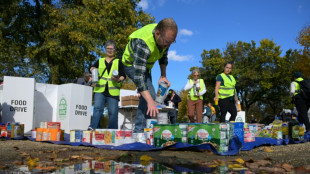
-
 Trump keeps world guessing with shock nuclear test order
Trump keeps world guessing with shock nuclear test order
-
Wall Street stocks rebound on Amazon, Apple earnings

-
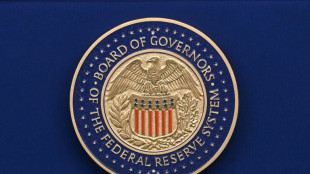 US Fed official backed rate pause because inflation 'too high'
US Fed official backed rate pause because inflation 'too high'
-
Prayers and anthems: welcome to the Trump-era Kennedy Center

-
 Swiss central bank profits boosted by gold price surge
Swiss central bank profits boosted by gold price surge
-
Sinner beats Shelton to boost number one bid in Paris

-
 French court jails Bulgarians for up to four years for Holocaust memorial defacement
French court jails Bulgarians for up to four years for Holocaust memorial defacement
-
Profits dip at ExxonMobil, Chevron on lower crude prices
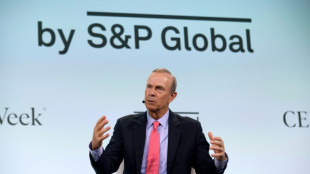
-
 Ashraf and Mirza skittle South Africa as Pakistan win 2nd T20
Ashraf and Mirza skittle South Africa as Pakistan win 2nd T20
-
2,000 trucks stuck in Belarus after Lithuania closes border: association
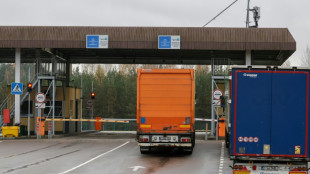
-
 French lawmakers reject wealth tax proposal in budget debate
French lawmakers reject wealth tax proposal in budget debate
-
Premier League blames European expansion for lack of Boxing Day games

-
 Bublik sets up Auger-Aliassime semi-final at Paris Masters
Bublik sets up Auger-Aliassime semi-final at Paris Masters
-
World's most expensive coffee goes on sale in Dubai at $1,000 a cup
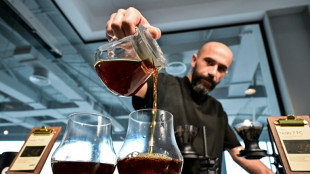
-
 Trump stirs global tensions, confusion with nuclear test order
Trump stirs global tensions, confusion with nuclear test order
-
Panic across US as health insurance costs set to surge

-
 Court eases ban on Russian lugers but Olympic hopes on thin ice
Court eases ban on Russian lugers but Olympic hopes on thin ice
-
England captain Itoje targets Autumn Nations clean sweep

-
 Calmer Sabalenka sets sights on WTA Finals crown
Calmer Sabalenka sets sights on WTA Finals crown
-
Spurs boosted by Romero return for Chelsea clash

-
 Sudan's RSF claims arrests as UN warns of 'horrendous' atrocities in Darfur
Sudan's RSF claims arrests as UN warns of 'horrendous' atrocities in Darfur
-
US says 'non-market' tactics needed to counter China's rare earth dominance

-
 China sends youngest astronaut, mice to space station
China sends youngest astronaut, mice to space station
-
From adored prince to outcast, Andrew's years-long fall from grace

-
 Rodri return fuels Guardiola belief in Man City title challenge
Rodri return fuels Guardiola belief in Man City title challenge
-
China holds send-off ceremony for space station astronauts

-
 Barcelona to show off unfinished Camp Nou with public training session
Barcelona to show off unfinished Camp Nou with public training session
-
Turkish court jails 11 for life over deadly hotel inferno

-
 Auger-Aliassime ends Vacherot run to reach Paris Masters semis
Auger-Aliassime ends Vacherot run to reach Paris Masters semis
-
Australia captain Wilson denies Wallabies use 'dangerous' breakdown tactics

-
 'Populists can be beaten': Dutch centrist Jetten claims election win
'Populists can be beaten': Dutch centrist Jetten claims election win
-
China's suspension of rare earth controls applies to EU: official

-
 Italy complains about strong euro, urges ECB to cut rates
Italy complains about strong euro, urges ECB to cut rates
-
Louvre to get anti-ramming barriers by year end: minister


Food stamps, the bulwark against hunger for over 40 mn Americans
The ongoing budget deadlock in the United States is threatening food security of around 42 million Americans who receive food stamps at the start of each month to help get by.
The US Department of Agriculture had said that no money could be paid out on Saturday due to the shutdown.
But on Friday, a federal judge helped ease some of the uncertainty at the last minute by ordering the government to use emergency funds to ensure the continuity of the Supplemental Nutrition Assistance Program (SNAP), which has helped low-income Americans for more than 60 years.
The idea that SNAP assistance could be paused is "truly unprecedented," Meredith Niles, a professor specializing in food policy at the University of Vermont, told AFP.
"This has never happened in more than 50 years of the program, despite numerous other government shutdowns," she said.
Here's how SNAP works, and what its absence could mean for those affected.
- How does it work?
While food stamps date back to the 1930s during the Great Depression, the SNAP program was created in 1964 and expanded nationwide in 1974, according to Niles from the University of Vermont.
Today, around one-in-eight Americans receive SNAP benefits each month based on income, according to the Department of Agriculture.
This costs the federal budget nearly $100 billion.
Beneficiaries have a payment card, similar to a debit card, which they can use in supermarkets, grocery stores, and some farmers' markets. The cards are usually reloaded automatically on the first day of the month.
To qualify for SNAP, along with being low-income, recipients must meet certain requirements -- which can vary from working at least 30 hours a week to being medically deemed unable to work due to disability.
"It is an important program for many Americans," Niles said, adding that recipients receive an average of around $6 per person day.
Every day items like fruit, vegetables, canned goods, chips, and pasta are covered by SNAP, while alcohol and pre-prepared meals are not.
From January 2026, around ten states also plan to exclude the purchase of soft drinks using SNAP vouchers.
- Impact of SNAP pause -
Nationwide, around nine percent of grocery purchases are paid for using SNAP, according to Niles, with a quarter of all purchases using the vouchers made at the retail giant Walmart.
"We're talking about billions and billions of dollars that aren't going to be in the economy," if SNAP payments are frozen in future, she added.
If SNAP payments are halted, Niles said she expects people will try to compensate by dipping into their savings, skipping meals, or deferring other expenses like repaying loans or attending medical appointments.
Households will receive retroactive benefits once the suspension is lifted and federal funding is made available again, according to a US Department of Agriculture document shared with AFP.
- Beyond party politics -
SNAP is an issue that transcends politics, with millions of Democrats and Republicans registered to receive the support.
Close to 24 million SNAP recipients live in states that voted for the current Republican President Donald Trump, while approximately 18 million beneficiaries live in places that voted Democrat in last year's presidential race, according to AFP analysis.
In the event of non-payment, states have invited recipients to make use of food banks — which could be swiftly overwhelmed by the demand.
According to the latest available data, 13.5 percent of American households did not have guaranteed access to sufficient quantity and quality of food in 2023, the highest level since 2014.
In September of this year, the Department of Agriculture announced it would stop gathering the data for this report.
A.Zbinden--VB
